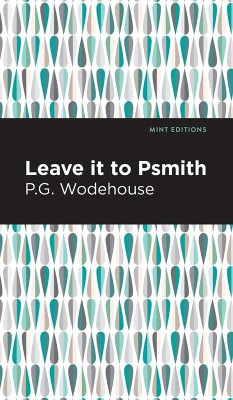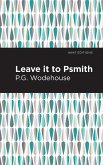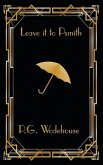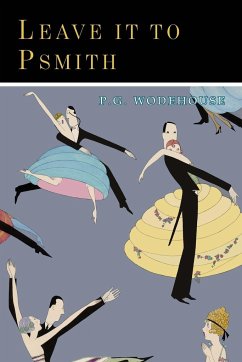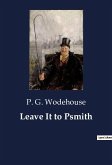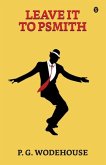Psmith (the p is silent) is a man of contrasts. He is overly confident, but smart, and prone to mischief, but resourceful enough to get himself out of trouble. Down on his luck and out of a job, Psmith meets Eve Halliday in the middle of a downpour. Immediately drawn to her beauty, Psmith decides to help Eve get out of the rain. After he borrows an umbrella from a nearby club without asking, Psmith offers it to Eve, so that she is able to finish her walk. Thankful, Eve continues to walk with Psmith. Their involvement eventually gains the attention of Eve's new boss, a wealthy and powerful man named Lord Emsworth, who, upon meeting Psmith, mistakes him for a famous poet. Realizing that such an identity would gain him an invitation to Blandings Castle, where he could spend time with Eve, Psmith decides to not to correct Lord Emsworth. During the party at Blandings Castle, Psmith is asked to make a speech and recite a poem, though as a man well versed in malarkey, Psmith can navigate himself out of the problem. However, when he realizes that his impersonations have led him to an unintentional involvement in a jewelry heist, the night unfolds issues that he never could have predicted. Leave it to Psmith is P.G Wodenhouse's fourth novel featuring his beloved reoccurring character, Ronald Psmith. Though part of a series, Leave it to Psmith can be enjoyed independently. Described as a bright and genius read, the simple humor and amusing misadventures of Psmith earns the acclaim of contemporary audiences. This edition of Leave it to Psmith is now presented in a reader-friendly font and features a fun, eye-catching cover design. With these accommodations, modern audiences are able to enjoy the classic comedy of P.G Wodenhouse with ease. Since our inception in 2020, Mint Editions has kept sustainability and innovation at the forefront of our mission. Each and every Mint Edition title gets a fresh, professionally typeset manuscript and a dazzling new cover, all while maintaining the integrity of the original book. With thousands of titles in our collection, we aim to spotlight diverse public domain works to help them find modern audiences. Mint Editions celebrates a breadth of literary works, curated from both canonical and overlooked classics from writers around the globe.
Bitte wählen Sie Ihr Anliegen aus.
Rechnungen
Retourenschein anfordern
Bestellstatus
Storno

